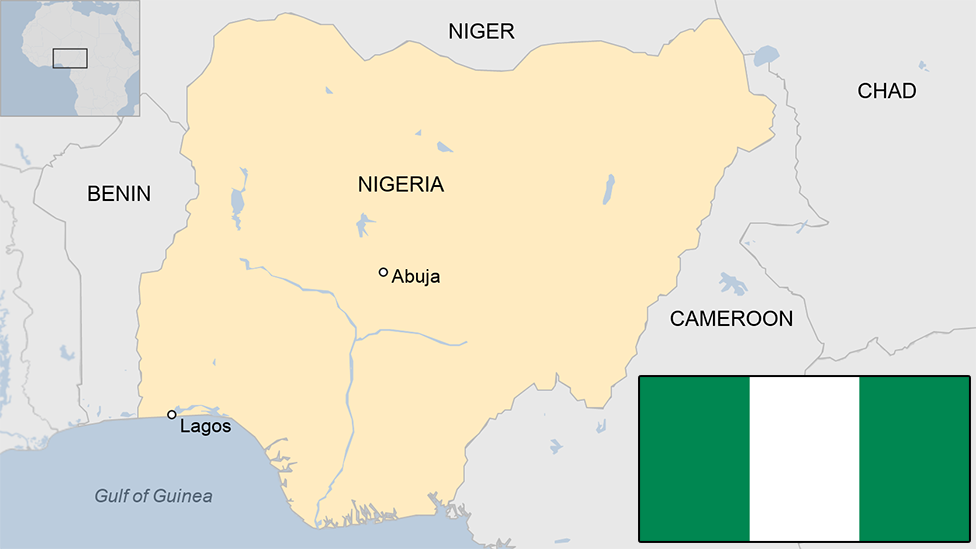Letter from Africa: A royal feud threatens Nigeria's heritage
- Published
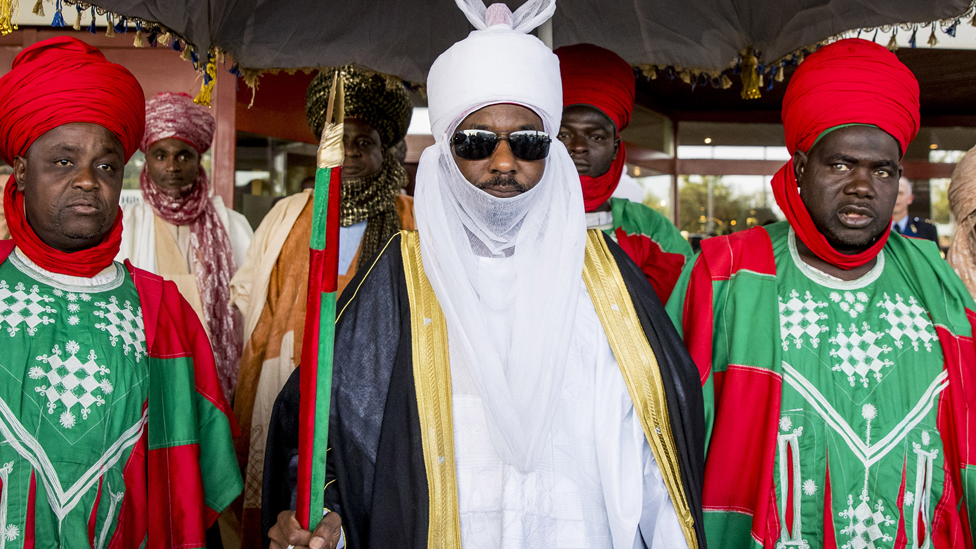
In our series of letters from African journalists, the editor-in-chief of Nigeria's Daily Trust newspaper, Mannir Dan Ali, considers why politicians have taken aim at one of the most influential spiritual and traditional leaders in the country's largely Muslim north.
For the Emir of Kano, Muhammad Sanusi II, 2019 looks set to be his "annus horribilis".
This is because one politician in particular, Kano's Governor Abdullahi Ganduje, is determined to go to great lengths to clip his wings - or possibly remove his entire royal plumage.
For more than 1,000 years, the position of Emir of Kano has been revered. Traditional leaders hold few constitutional powers but are able to exert significant influence as they are seen as custodians of both religion and tradition.

The emir's role
Absolute power before British colonial rule
Became part of colonial administration
Few constitutional powers since independence
Seen as custodian of religion and tradition
Revered in the mainly Muslim north

But last month, Mr Ganduje cut the historic Kano emirate into five. It left Muhammadu Sanusi II presiding over the smallest, though most densely populated, portion.
It is a move that diminishes the emir's prestige.
The emir's holier-than-thou attitude has upset some politicians"
Lamido Sanusi, a controversial former bank chief, came to the emir's throne in 2014 after being selected by elders and then confirmed by the then-governor.
Like his time at the bank, where he was sacked after revealing that billions of dollars of oil revenue had gone missing, the 57-year-old has used his position to speak out on some matters. But his holier-than-thou attitude has upset some politicians.
The first sign that relations between the state government and the emirate were at an all-time low came shortly after Mr Ganduje's re-election earlier this year.
A video began circulating on social media showing a crowd in Kano Government House forcefully removing a portrait of the emir and tearing it to pieces.
Allow X content?
This article contains content provided by X. We ask for your permission before anything is loaded, as they may be using cookies and other technologies. You may want to read X’s cookie policy, external and privacy policy, external before accepting. To view this content choose ‘accept and continue’.

This happened just a few metres from the grand hall, which was specially built in June 2014 for the emir's coronation.
Mr Ganduje narrowly won a second term in office - in fact the race was so tight it had to be re-run in some areas in March and his rival is challenging the result in court.
Now, the governor wants to settle scores with those he believes opposed his re-election. The emir is top of his list.
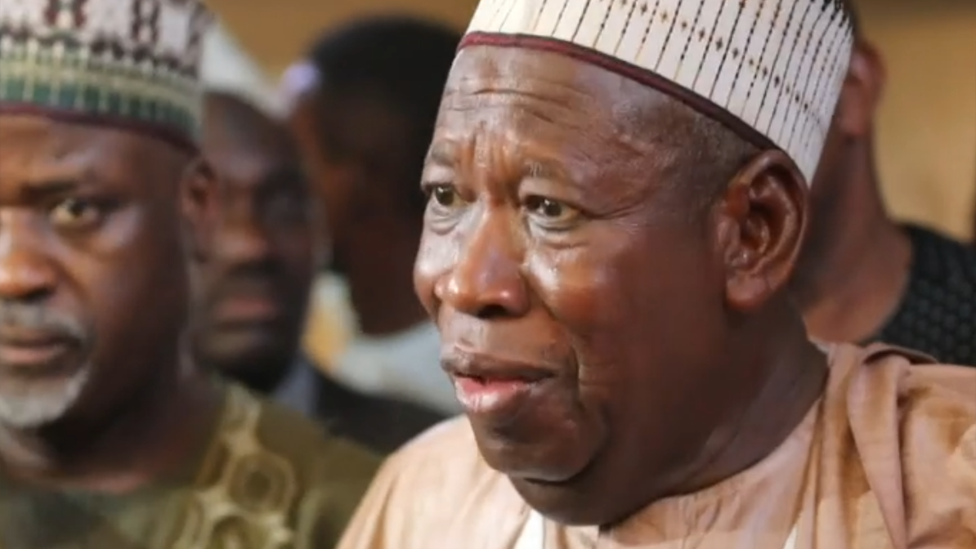
Governor Abdullahi Ganduje moved to split up the emirate shortly after his re-election
Many suggest the emir is in this predicament because he has defied a tradition that dictates that part of his turban covers his mouth so that courtiers speak on his behalf.
However, unlike his predecessors, this emir has been seen and very much heard. He has not shied away from public comments and has criticised the government which has put him on a collision course with political office holders.
On one occasion he criticised the Kano governor's idea of building a metro rail with money from a Chinese loan.
Durbar cancelled
What some see as Mr Ganduje's vendetta against the emir began as early as 2017 when an investigation was opened into the finances of the emirate, which is funded by the state.
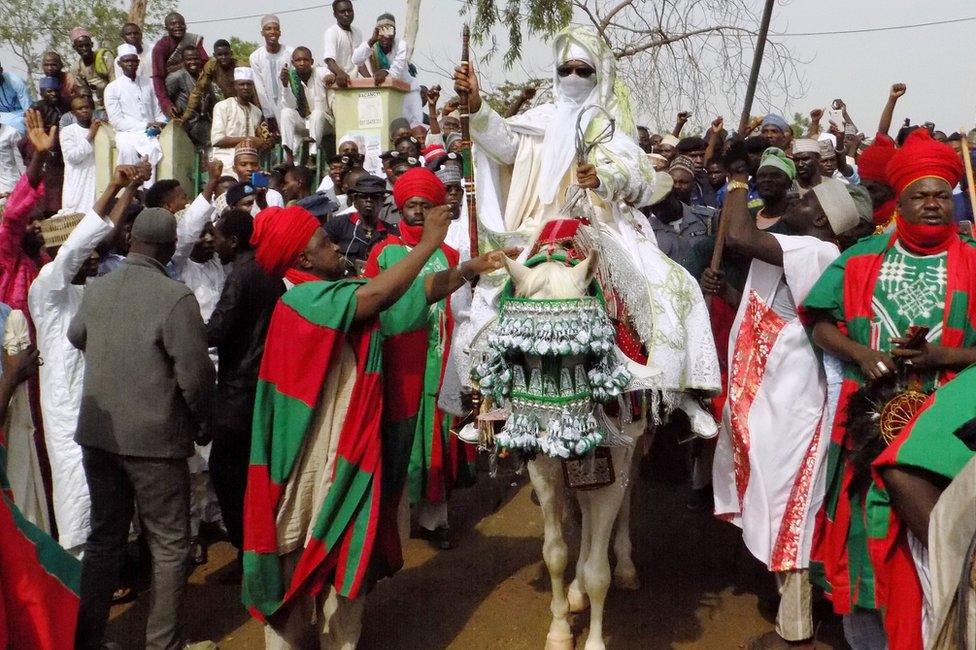
During the Durbar, the emir rides a horse around Kano - a tradition loved by city residents
A report published last week recommended the suspension of the emir, accusing him of undermining the investigation by instructing emirate officials to shun questions by its researchers.
It said that up to 3.4bn naira (about $9.4m, £7.4m) was spent in what was called fraudulent, questionable and inappropriate ways, pointing to the cost of renovations within the palace, telephone bills, air travel and hotel bills.
Since the drama began to unfold, the emir took an unusually long time to respond to the allegations, which he has now dismissed, saying it would have been impossible to misspend $9.4m because there was only $6.1m in the accounts when he took over.

Who is Muhammad Sanusi II?
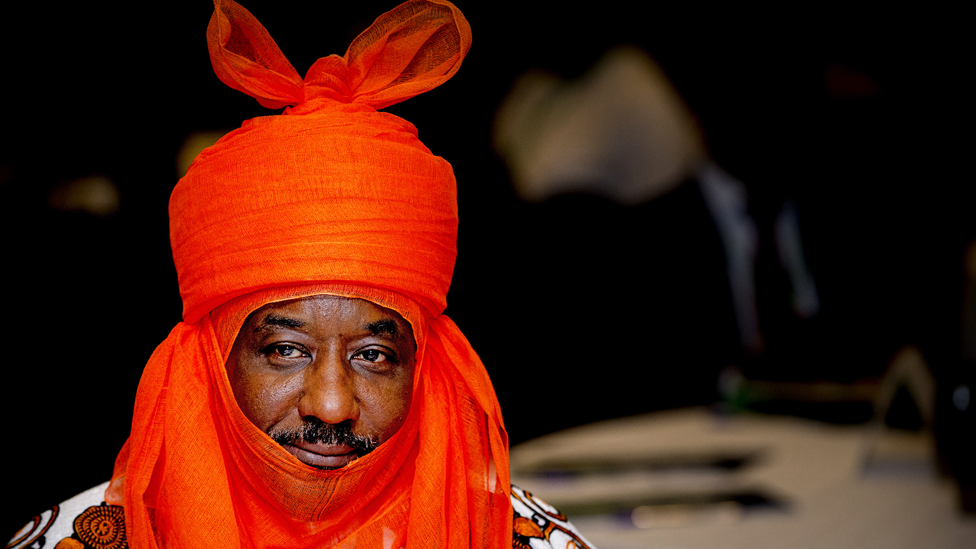
Born into the Fulani royal family, Lamido Sanusi became governor of the Central Bank of Nigeria in 2009
He was sacked in 2014 after revealing that $20bn (£12bn) in oil revenue had gone missing
TIME magazine named him in its list of influential people in 2011
In 2013, he was awarded a special award at the Global Islamic Finance Awards for his role in promoting Islamic banking and finance in Nigeria
He is the 14th Emir of Kano and the grandson of the 11th Emir

The governor may have decided to make the report public to detract from corruption allegations that have been levelled at him after videos circulated appearing to show him shoving fistfuls of high-denomination dollars into the pocket of his voluminous robes.
Mr Ganduje denied collecting bribes from contractors and said the recordings were faked. A state assembly investigation was later stopped by a court order sought by the governor, who is also suing for defamation.
Emirs have been forced to resign in the past, but the current tension prompted the state government to cancel last week's durbar, a three-day horse parade held to mark the Eid al-Fitr celebration for the end of the fasting month of Ramadan.
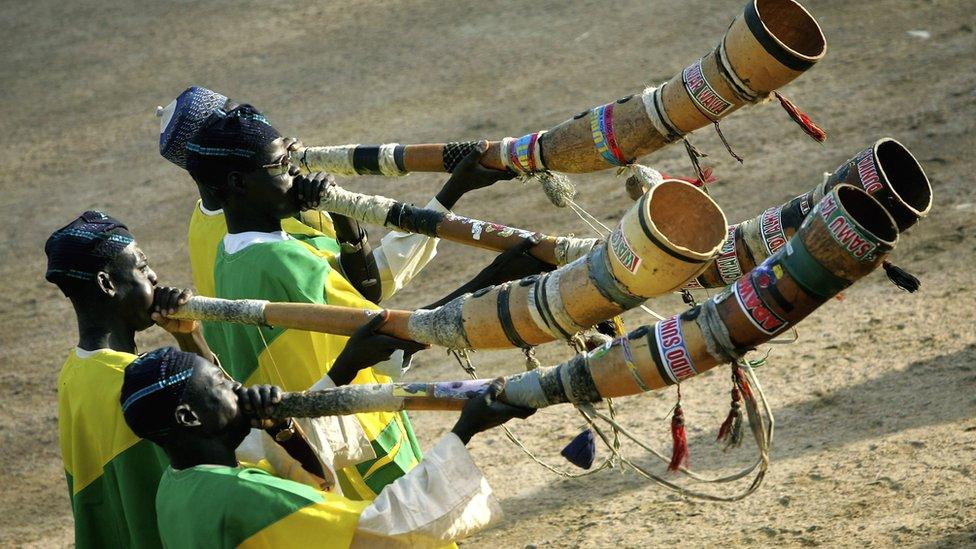
Traditional horn blowers take part in Kano's Durbars
During the durbar, which is also a big tourist attraction, the emir rides a horse around the city, accompanied by a troupe of his cavalry wearing colourful, traditional robes and later people queue up to pay homage to him.
It is these traditions that make the residents of Kano enormously proud - and an attempt in the 1980s by another governor to split up the emirate ended in clashes.
For those who see the whole episode as politically motivated, their hope is that this latest attempt will too end in failure.
Mr Ganduje's challenger is already promising to reverse the decision if the court rules in his favour.
Although no-one is holding their breath - the emir's hold over the rich and colour heritage of Kano may wane if he becomes an ordinary civil servant answerable to the whims of politicians.

More Letters from Africa
Follow us on Twitter @BBCAfrica, external, on Facebook at BBC Africa, external or on Instagram at bbcafrica, external


Update 10 June 2019: This piece has been amended to reflect that the Emir of Kano has commented on the allegations against him.
- Published25 June 2014
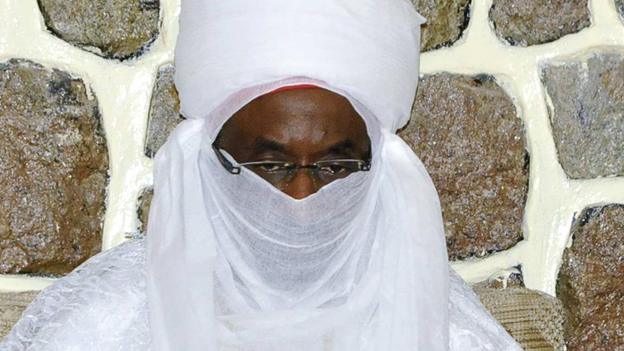
- Published12 March 2019

- Published28 July 2023
